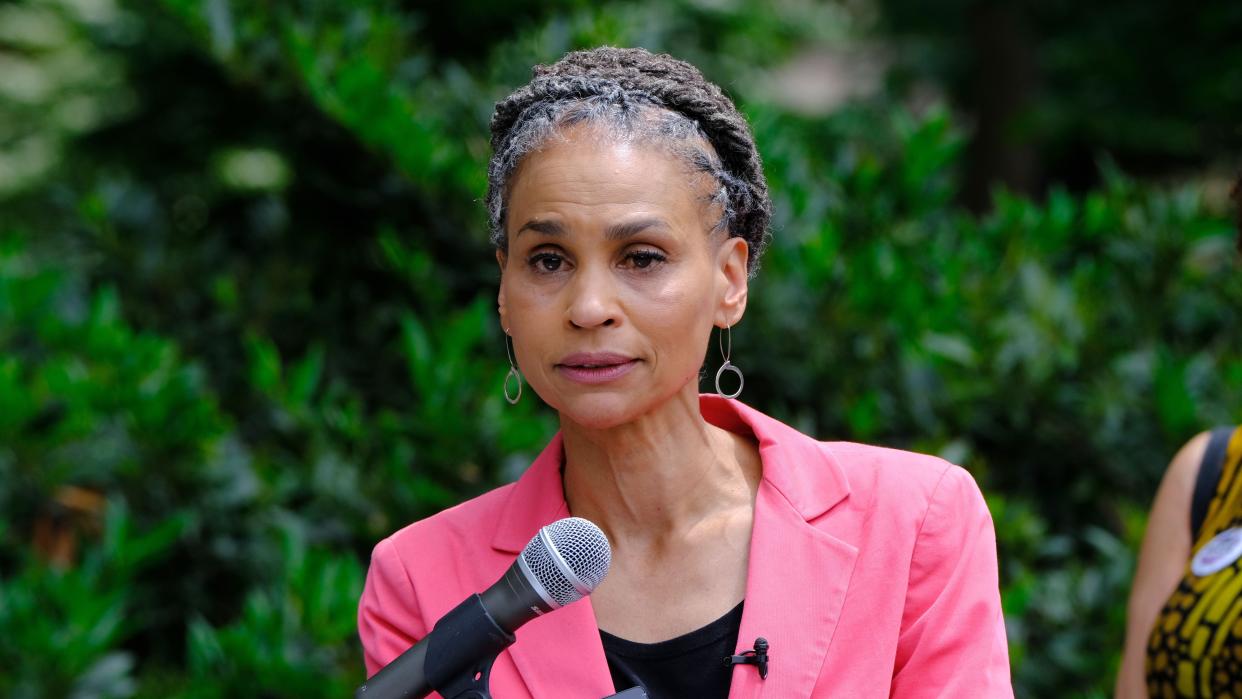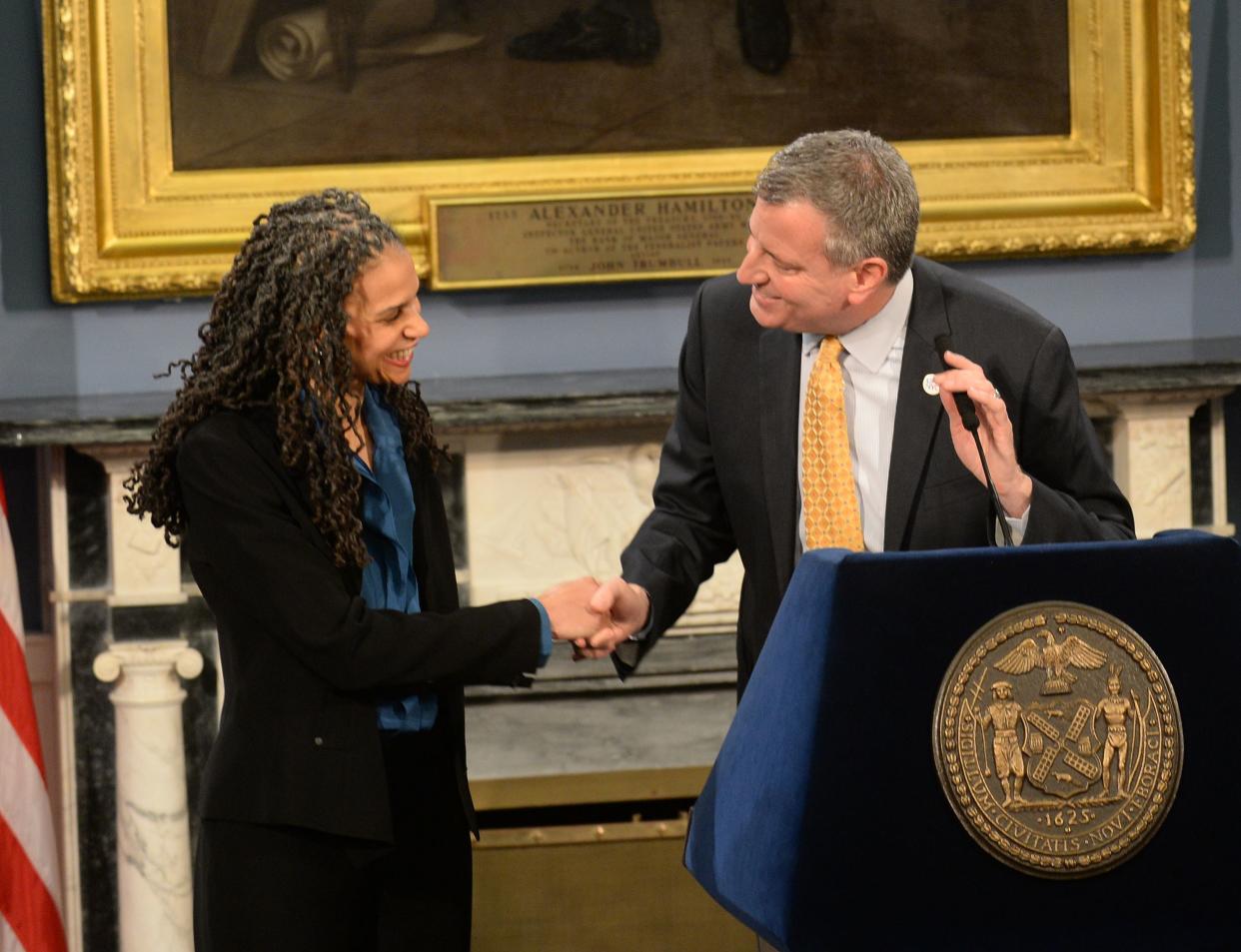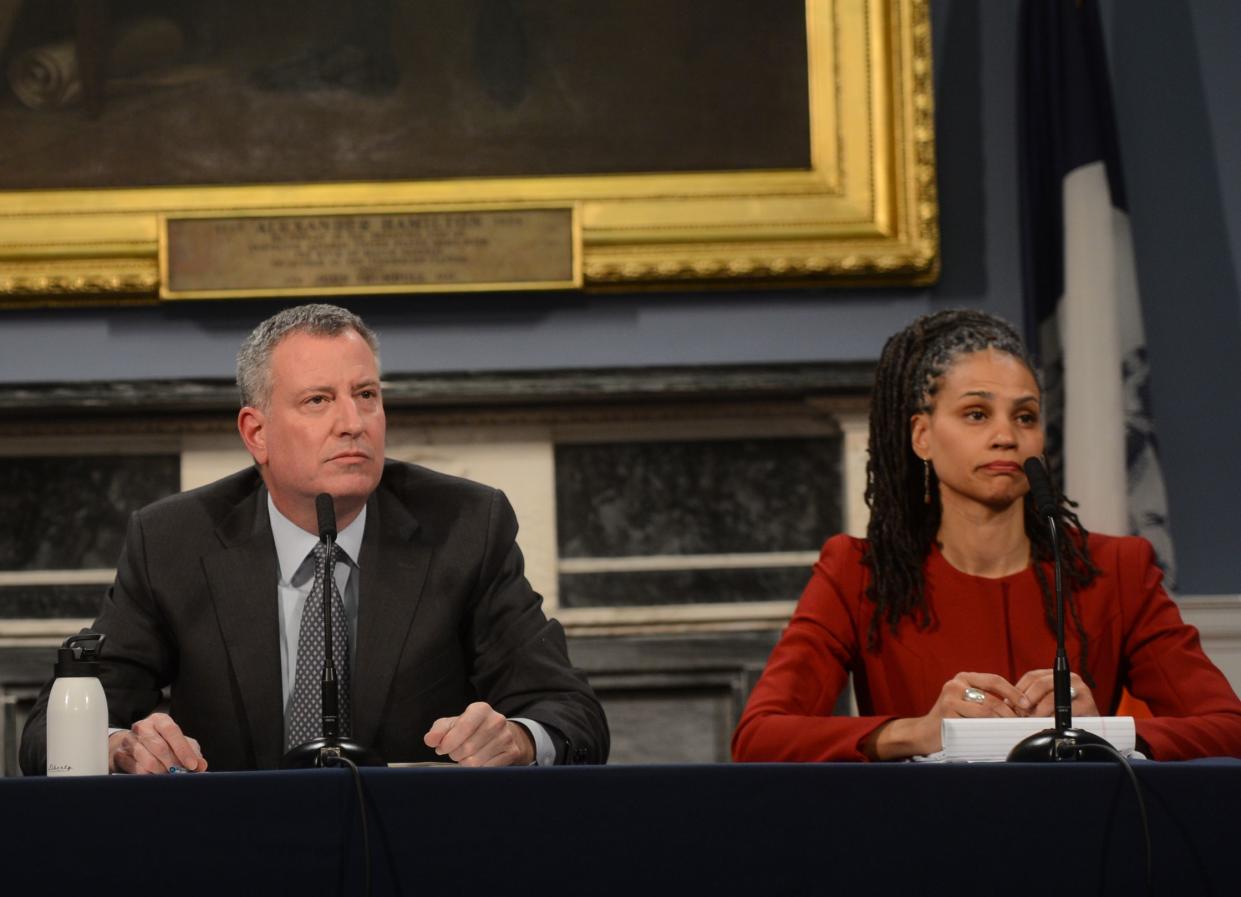Maya Wiley got sizable pay bump from non-profit before moving to City Hall, raising questions and optics
New York City Democratic mayoral contender Maya Wiley received a significant pay raise from the non-profit where she was working immediately before becoming Mayor de Blasio’s legal counsel in 2014 — and several months before de Blasio tapped one of the non-profit’s board members to serve on the city Human Rights Commission, a Daily News’ analysis of public records has found.
At the time of her former colleague Catherine Albisa’s appointment to the commission, Wiley supervised the commission and would have been in a prime position to recommend her to de Blasio, who ultimately tapped Albisa for the job.

The order of events and how exactly they transpired is now raising questions about whether there was a connection between the pay hike Wiley received at the non-profit and Albisa’s Human Rights Commission appointment, as well as her subsequent role as Wiley’s campaign treasurer.
“If you want to avoid the appearance of impropriety, you wouldn’t want to reach out to the member of the board for a non-profit from which you drew a salary,” said Richard Flanagan, a CUNY political science professor. “It suggests someone who is not taking the extra step to avoid the appearance of a conflict of interest ... It’s not great.”
Before joining de Blasio’s administration, Wiley, who has surged in recent polls with the help of an endorsement from Rep. Alexandria Ocasio-Cortez (D-N.Y.), served as president for the Center for Social Inclusion, a non-profit dedicated to ending racial inequity.
Wiley left that job in early 2014 to work as a top lawyer for de Blasio — a decision Hizzoner announced on Feb. 18 of that year.

But before leaving her private-sector job, Wiley’s salary appears to have more than doubled based on an analysis of tax forms the non-profit submitted to the IRS. Those forms show that in the 2013 calendar year, Wiley earned a salary of $180,991. The non-profit’s total assets for that year were just over $2 million, tax records show.
In the following year, Wiley left the non-profit for her City Hall gig in February, but for the months out of the year that she remained at the center she pulled in $66,923 — which would have made her annual salary for that year $401,000 if she’d stayed — more than double her pay compared to the year before.
The forms also show that Albisa served as a board member for the non-profit for those two years.
Wiley noted in April that part of her role as de Blasio’s legal counsel included supervising the Human Rights Commission.
“As counsel to the mayor, the city Commission on Human Rights was under my supervision and I fought to have City Hall give it the focus and resources it deserves,” she told The New York Jewish Week at the time.

While it’s unclear how much say, if any, she had in advising de Blasio about appointments to the commission, it is clear that in November 2014, Hizzoner tapped Wiley’s former non-profit colleague to serve as a commissioner for the city’s Commission on Human Rights.
It’s an unpaid position, and, according to the commission’s website, commissioners’ responsibilities include assisting the agency’s head “in addressing issues of discrimination citywide.”
Flanagan acknowledged that Albisa’s appointment “could have been out of [Wiley’s] hands,” but also described the connection as “too close.”
“I don’t think voters should like the look of it,” he said.
Albisa now serves as Wiley’s campaign treasurer and continues to serve on the city’s Commission on Human Rights.
Non-profit board members often have a say over the salary of employees. But Wiley’s campaign claimed that in this case, Albisa had no influence over Wiley’s salary.
“Maya was simply paid out for a sabbatical that was board approved and owed because she never had the opportunity to take it,” Wiley spokeswoman Julia Savel said. “Cathy Albisa was not involved in any way in that process.”
In her role with the city, Wiley was required to file financial disclosure forms with the city Conflicts of Interest Board. On her 2015 COIB filing, which covers May of 2014 to May of 2015, Wiley reported earning a salary of between $100,000 and $250,000 in her role as de Blasio’s counsel, as well as two IRAs and several deferred compensation plans.
In her 2014 COIB filing, which would cover May 2013 to May 2014, she provided the same salary range —$100,000 and $250,000 — but for her prior job at the Center for Social Inclusion.
According to the non-profit’s tax documents, which were submitted to the IRS for the 2014 calendar year, Wiley earned $61,682 “reportable compensation” and $5,241 in “other compensation” for a combined total of $66,923. Her total compensation there for the prior year was $180,991, tax records show.
Check out our special section for the latest news on the critical 2021 elections in NYC. And to have the essential news and analysis sent to your inbox, sign up for our Campaign Diaries newsletter.
